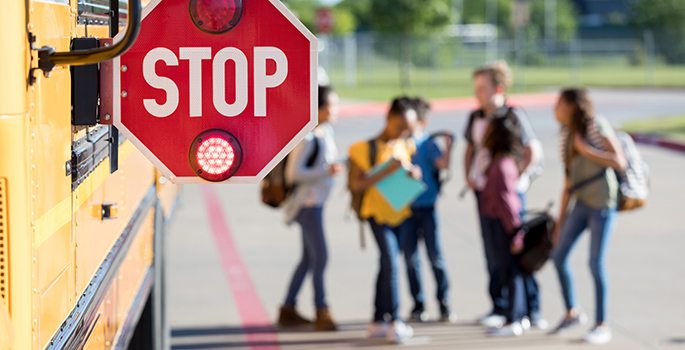

Metro Nashville Public School students who feel unsafe in their neighborhoods are more likely to face transportation challenges and have fewer opportunities to access community resources and supervised activities, according to early findings from a Vanderbilt University research project.
The data also show that as students age they are less likely to report having a positive relationship with an adult outside of school or home.
The Nashville Longitudinal Study of Youth Safety and Well-being is led by Maury Nation, professor of human and organizational development (HOD), at Vanderbilt Peabody College of education and human development.
He is a national expert on violence and bullying prevention among school-age children.
The project is a five-year research collaboration with Metropolitan Nashville Public Schools, Oasis Center and the Mayor’s Office and is funded by the National Institute of Justice.
View the early findings report.
Goals
The goal of the study is to create a multi-year data set that allows teachers, professionals who work with youth, researchers and policymakers to promote safety and well-being for Nashville’s young people by gaining a greater understanding of how young people’s experiences are shaped by factors ranging from trust to transportation, and how these factors affect students in the classroom and beyond.
“Our findings reflect some important consequences of neighborhood inequities.”
–Maury Nation
Implementation
MNPS students in grades 3–12 are being surveyed for three consecutive years, every January, to better understand their neighborhood experiences and track their social and emotional development.
The first survey was administered in January 2019, with around 75 percent of eligible students participating. Students answered questions about their neighborhoods with respect to six key areas:
- levels of mutual trust and support;
- sense of safety;
- sense of connectedness and belonging;
- transportation;
- relationships with adults; and
- afterschool opportunities.
Why Neighborhood Experiences Matter
“Our findings reflect some important consequences of neighborhood inequities,” Nation said. “For example, students who report they don’t feel safe in their neighborhoods also report they don’t have easy access to transportation. That means young people who are exposed to the most neighborhood challenges have the least ability to travel from their neighborhoods, and are less likely to benefit from the many resources/supports available across Nashville.”
Such inequities have direct negative implications in the classroom, including on students’ achievement, attendance and discipline, Nation said. Such effects will be addressed in upcoming reports.
Another key finding is that older students were less likely than their younger peers to report having a positive relationship with an adult outside their home or school.
“The fact that we have students saying they don’t have any positive relationship with an adult outside their home or school is of great concern,” Nation said. “Having trusting and supportive relationships with adults provides multiple benefits to adolescents and is one of the best predictors of success for young people.”
Looking Ahead
These data offer a starting point for conversation on how Nashville can improve the lives of public school children by addressing the challenges they face in the rapidly changing landscape of its neighborhoods.
Over the next two years, project partners will continute to work with the Nashville community to dive more deeply into the knowledge gleaned, to hear directly from youth about their experiences through focus groups, and to consider implications for our city’s efforts to promote the safety and well-being of all young people.
Researchers hope to identify the ways in which neighborhood environments impact learning and behavior in order to provide insight to policymakers and other stakeholders.
“The fact that we have students saying they don’t have any positive relationship with an adult outside their home or school is of great concern.”
–Maury Nation
When complete, the data set will provide a longitudinal database that can link MNPS student outcomes to a range of other city data, including the Metropolitan Planning Organization, the Metropolitan Nashville Police Department, the Juvenile Court of Metro Nashville and Davidson County, the U.S. Census, Metro Schools’ climate surveys and administrative records, and more.
Collaborators
Vanderbilt co-investigators are Caroline Christopher, research assistant professor of teaching and learning and HOD; David Diehl, assistant professor of HOD; Marcy Singer-Gabella, professor of the practice of education; and Paul W. Speer, professor and chair, HOD.
Co-investigators at other institutions are Allison Caruthers, senior research associate at the University of Oregon; Benjamin Fisher, assistant professor of criminal justice at the University of Louisville; David Padgett, associate professor of geography and director of the Geographic Information Sciences (GISc) Laboratory at Tennessee State University; Emily Tanner-Smith, associate professor and associate dean for research in the college of education at the University of Oregon; and Adam Voight, director of the Center for Urban Education at Cleveland State University.
Funding
National Institute of Justice Award #2016-CK-BX-K002